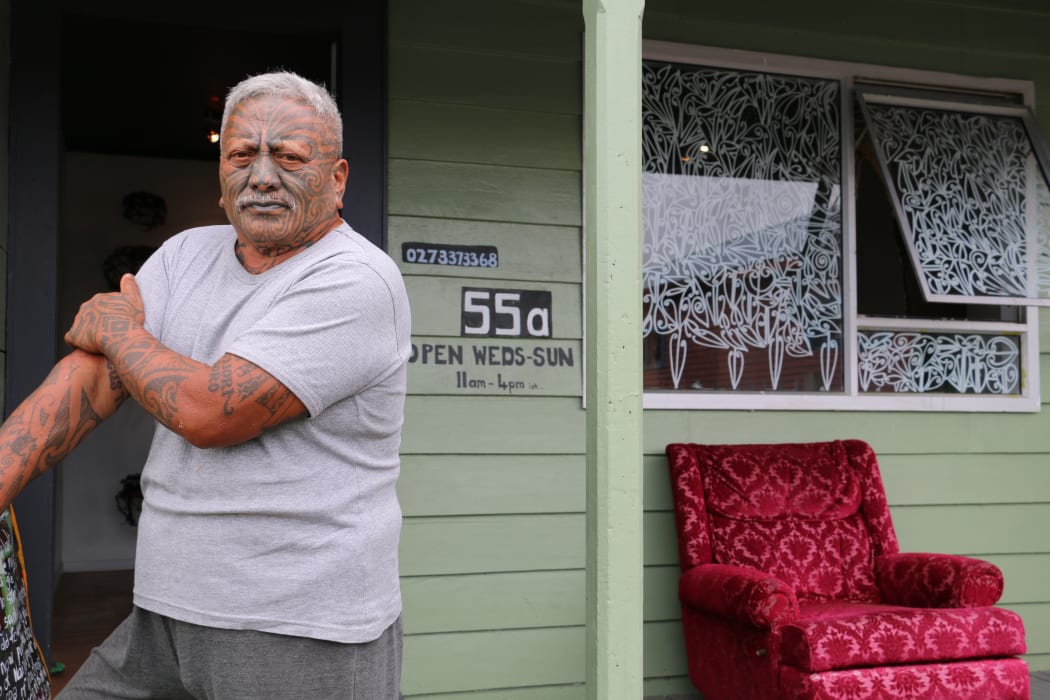
Tame Iti grew up in Taneatua in the 1950s. Photo: RNZ/Justine Murray
Transforming spaces is a trend in the Bay of Plenty township of Taneatua. Local Māori business owners – including Tame Iti and his son Toi – are optimistic about the future of their community.
Turning into Tuhoe Street in Taneatua, you'll see the grand structure of Te Kura Whare – a 'living building' that’s off the grid and home to Ngai Tuhoe Iwi.
Nearby, a once-dilapidated building covered in graffiti is home to the Taneatua Gallery and the former butchery has been transformed into a barbershop.
The hokohoko (second-hand) store that was boarded up for twenty years before is now up and running again.
According to the 2013 census, just under 800 people live in the community, which is named after the ancestor Taneatua, the older brother of Toroa who captained the Mataatua waka.
Taneatua was responsible for bestowing various other place names in the Te Urewera region.
'Why build a gallery in Taneatua?'
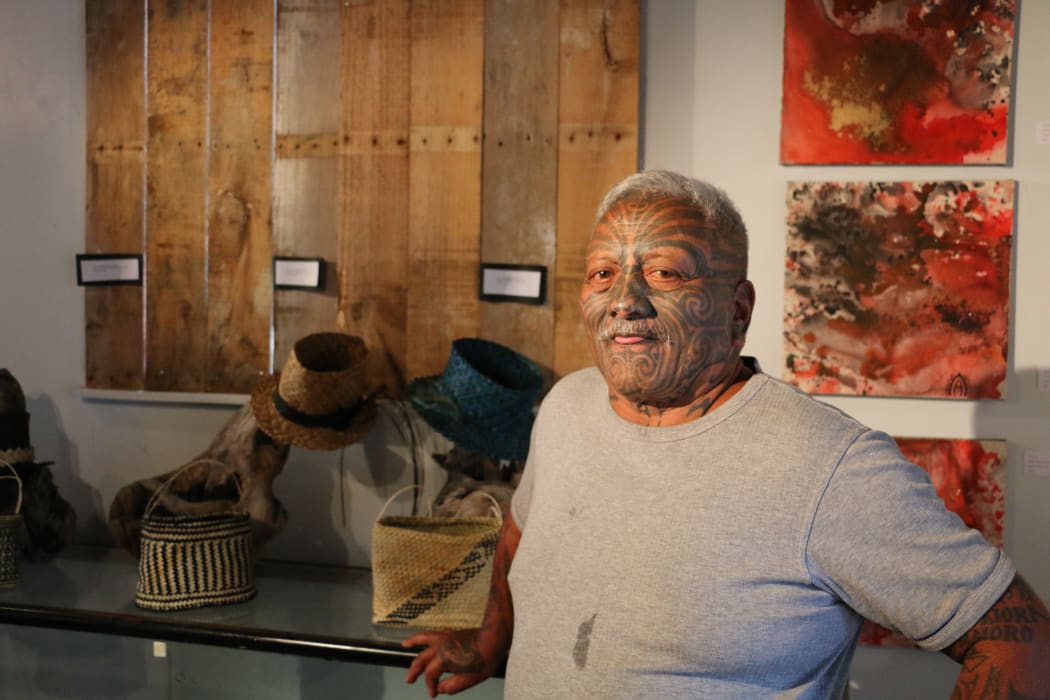
Tame Iti at Taneatua Gallery. Photo: RNZ/Justine Murray
The Taneatua Gallery at 55A Tuhoe Street is open from Wednesday to Sundays. On these days there's a hive of activity with volunteers and visiting foreigners helping out.
At the back of the gallery an incomplete painting lies on a large trampoline. Owner and artist Tame Iti says he has yet to add his bit to it.
The gallery space is a former house with different rooms to showcase the work of emerging artists.
As an ode to Taneatua, four of the spaces are named after his dogs.
The first international artist was the former member of the Blank Panther Party and designer Emory Douglas, who Tame recalls during the first night when a water leak through the ceiling added to the theme of the art.
Tame’s own art is for sale and the gallery sells a range of rongoā balms [medicinal tonics made from native plants] on behalf of practitioners.
“People say why build a gallery in Taneatua? It used to be happening town in the '50s and '60s. I was here during that period of time. Then through the '80s and '90s, all the local gangs set up. We had the pub over here, there were a lot of fights and it was not a good site at all. For us now we had to do a facelift to the capital city of the Tuhoe nation. And the community at large have been really good, all the local Pākeha farmers have been great. They can see the new transformation in our town.”
From a butchery to a barbershop
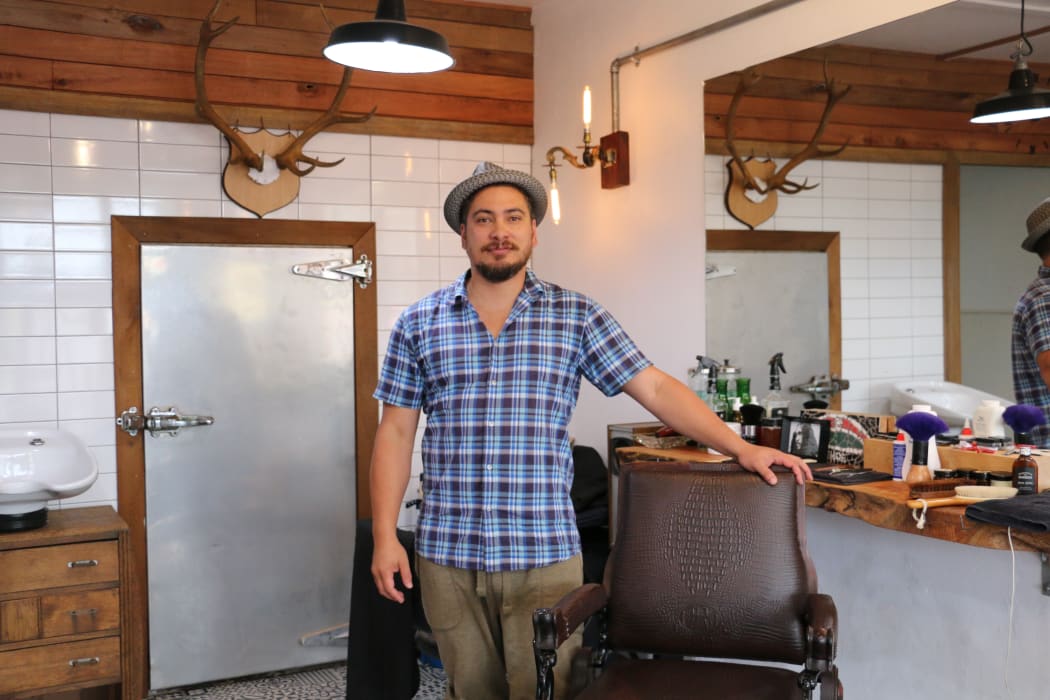
Toi Kai Rakau Iti moved back home to Taneatua a year ago. Photo: RNZ/Justine Murray
“We were talking over a beer, as you do, and I was like 'A barbershop would be great here in Taneatua.' One thing lead to another and we were doing it.”
The large sign outside Toi Kai Rakau Iti's barbershop reads 'Taneatua Hair Saloon' in a logo reminiscent of a country and western saloon.
Toi says it’s a play on the stories of the prophet Rua Kenana riding this horse through the town.
The small space was formerly used by Toi’s aunty as the base for the Taneatua branch of the Māori Women’s Welfare League, and before that, it was the local butchery. The refrigerated chiller door is evidence of the shop's former use.
The walls display old black and white photos of the town’s landscape.
A bit of elbow grease, design flare, online bargains and help from friends were instrumental in creating the hair saloon, Toi says.
“We put a new floor in because it was a sloping concrete floor to wash all the blood and guts out, you know that’s what they do in a butcher's. So we had to put a new floor in because putting a barber chair on a sloping floor... well, I might give you a crooked cut” he laughs.
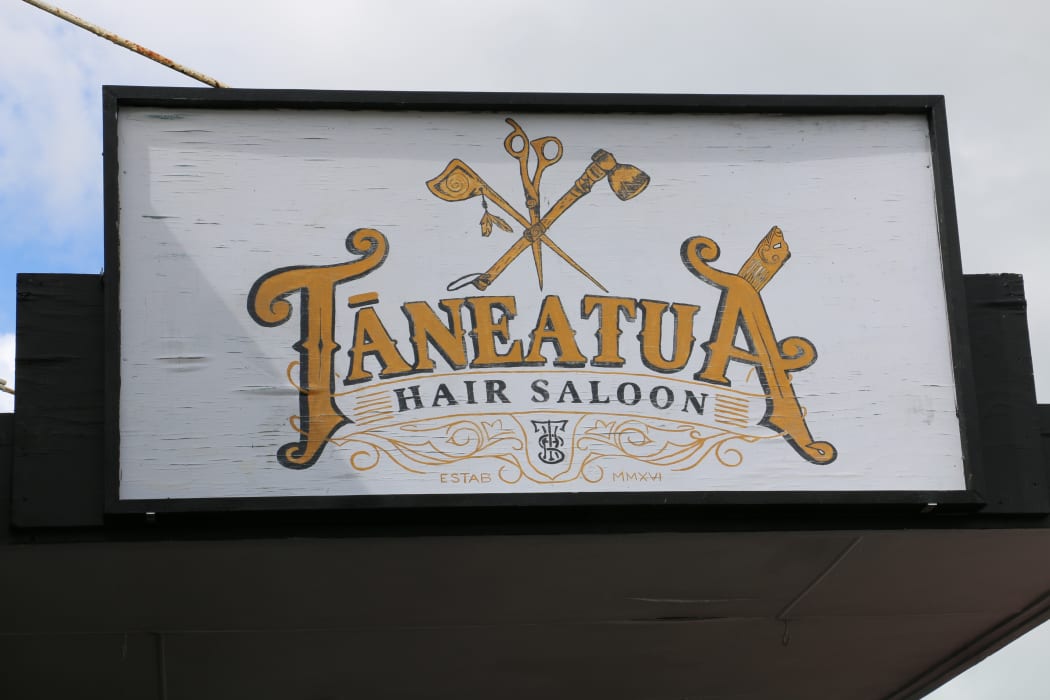
The Hair Saloon space used to be the local butchery. Photo: RNZ/Justine Murray
Toi's biggest purchases were two antique barber chairs (both over a century old) that were sourced in the Manawatu and Rotorua.
Being back home, he says he's optimistic about the future of the community and that mana motuhake (self-sustainability) seems to be the way forward.
‘We’re looking at initiatives with the hapu about starting a permaculture block, about growing stuff, about sustainability. That’s the buzz we are trying to be on here. If we can secure our own energy, water, and food sources... If we can build a local economy and shift peoples mind-sets from having the latest model of whatever it is to just living a healthy good life, a simpler life, then that’s where I feel like that there is an option. I feel as a tribe, not speaking on behalf of the tribe, we are wanting to head that way 'cause stuff is just a little too crazy out there in the cities.”
Fuelling the community
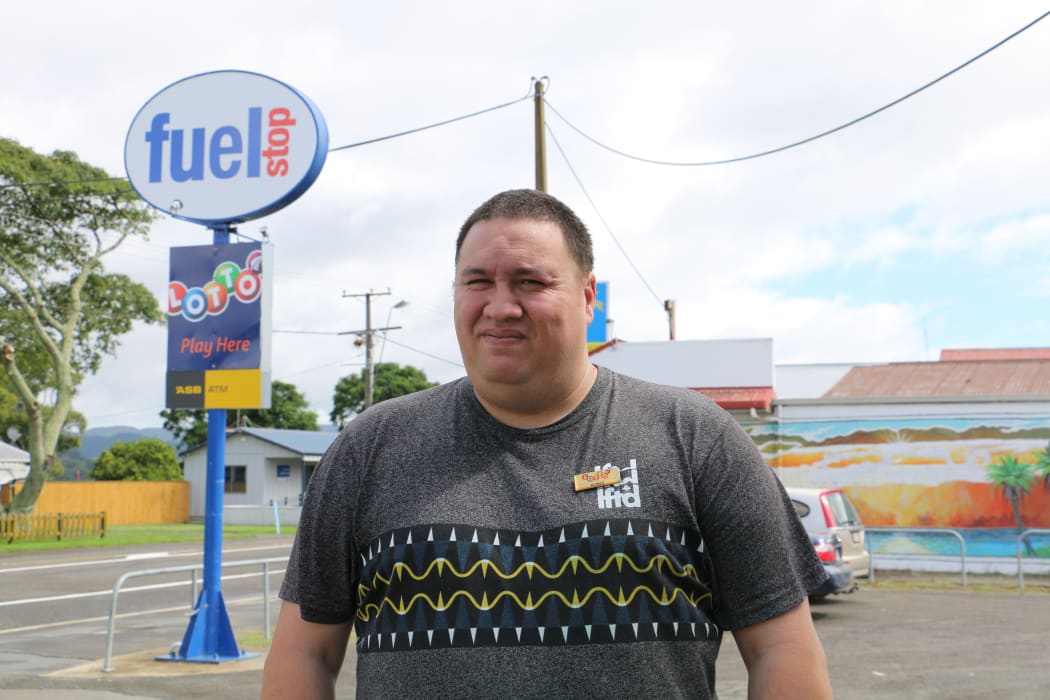
After years in the meatworks Konui and his whanau moved back to Taneatua and he bought the local petrol station. Photo: RNZ/Justine Murray
Business owner Konui runs the Taneatua fuel stop. Planted outside the store is a sign that reads "Kinas for $18.00".
After ten years of living in Te Kuiti, his family decided to move back to the area three years ago. With no job prospects in Whakatane, they decided to buy the business.
Most mornings are busy and with a lot of thoroughfare for heavy trucks, Konui says that the ground is always rumbling.
“There’s a couple of Māori business owners, hopefully we can get a few more. It’s pretty busy in the mornings. Sunday and Mondays are quiet, but on most days it’s like an earthquake.”
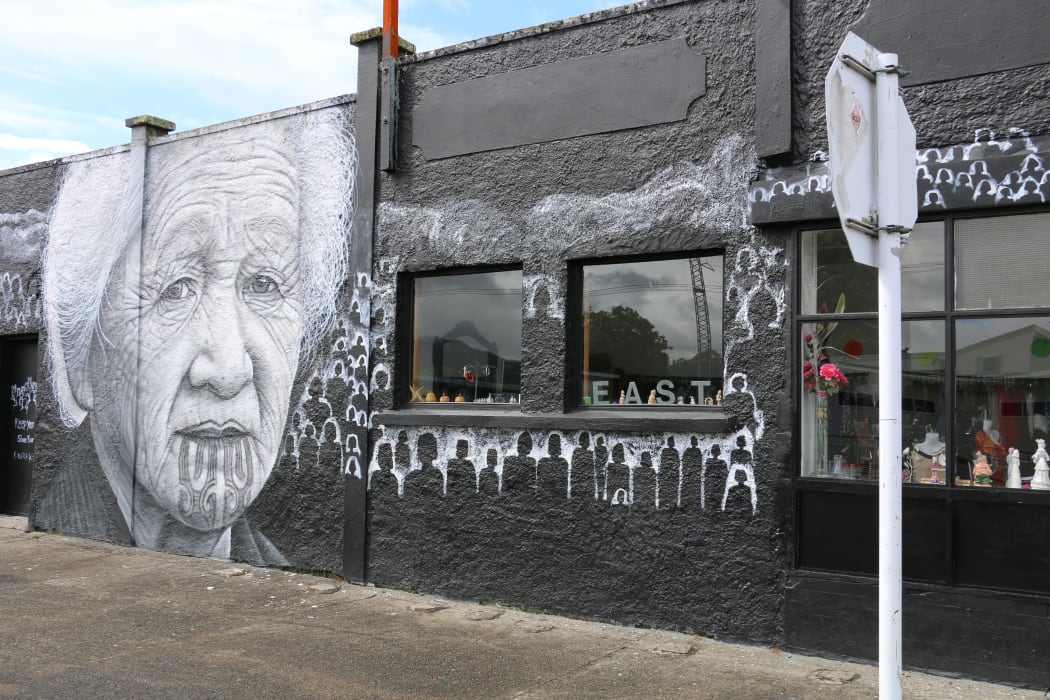
The local hokohoko (second hand store) features the portrait of Tuhoe Kuia, Hokimoana Te Rika-Hekerangi. Photo: RNZ/Justine Murray

